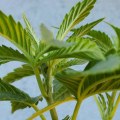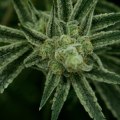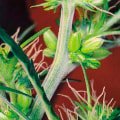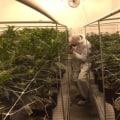The question of whether CBD is legal to grow is one that continues to attract attention as interest in hemp and cannabis expands across the globe. CBD, or cannabidiol, is a non-psychoactive compound derived from hemp plants that has gained popularity for its potential therapeutic benefits, including stress relief, pain management, and improved sleep. However, because CBD comes from cannabis, it falls under complex and sometimes conflicting regulations that vary from country to country and even state to state. To determine if CBD is legal to grow, it’s essential to examine the differences between hemp and marijuana, the role of federal and state laws, and the conditions required for legal cultivation.
Hemp vs. Marijuana: Key Distinctions
At the center of CBD’s legality is the distinction between hemp and marijuana. Both belong to the cannabis plant family, but hemp contains very low levels of THC—the psychoactive compound that produces a “high”—while marijuana typically has higher concentrations. In many regions, CBD is only legal if it is derived from hemp containing less than a set percentage of THC, often 0.3% in the United States. This distinction allows hemp cultivation to be regulated separately from marijuana, which remains illegal under federal law in certain places. Farmers and businesses must therefore ensure they are growing hemp specifically, not marijuana, to stay within legal guidelines.
Federal Laws and Their Impact
In the United States, the 2018 Farm Bill marked a turning point for CBD production. This legislation legalized the cultivation of hemp on a federal level, provided it met the THC threshold of 0.3% or lower. As a result, hemp farmers can grow plants for CBD extraction, fiber, and other uses under federally approved agricultural programs. However, while the Farm Bill legalized hemp production, the regulation of CBD products—particularly when marketed as dietary supplements or therapeutic treatments—still falls under the jurisdiction of the Food and Drug Administration (FDA). This creates a complex legal environment where growing hemp is federally legal, but the sale and marketing of CBD products are subject to additional rules.
State Regulations and Variability
Despite federal legalization, states maintain the authority to regulate hemp cultivation within their borders. Some states have embraced hemp farming, offering clear licensing programs and supportive agricultural policies, while others have imposed stricter requirements or outright restrictions. For instance, certain states require growers to obtain specific permits, undergo regular inspections, and comply with detailed reporting systems to remain in compliance. This means that while it may be legal to grow hemp in one state, it could be prohibited or tightly controlled in another. Anyone considering cultivation must carefully review their state’s specific laws to avoid legal complications.
International Perspectives
The legality of growing CBD-rich hemp also varies internationally. In parts of Europe, hemp cultivation is legal under strict THC limits, often capped at 0.2%. Countries such as Canada have more progressive laws, allowing broader cultivation and distribution of hemp and CBD products. Meanwhile, in other regions, growing hemp remains illegal or heavily restricted. This patchwork of global regulations makes it crucial for growers and businesses to understand the rules that apply to their specific country or region before pursuing cultivation.
Wellness and Responsible Cultivation
Beyond legality, many individuals see growing hemp for CBD as part of a broader movement toward wellness and natural remedies. By cultivating hemp responsibly, growers contribute to an industry focused on providing alternatives for health and relaxation. For individuals navigating personal challenges or seeking structured support such as Guardian Recovery Immersion, hemp-derived CBD represents a growing area of interest within holistic wellness approaches. However, ensuring that cultivation is legal and compliant with regulations is the first and most important step in responsibly participating in this expanding industry.
Conclusion: Legal but Conditional
In conclusion, the legality of growing CBD depends largely on whether it comes from hemp or marijuana, as well as the specific laws of the country or state in question. In the United States, the 2018 Farm Bill legalized hemp cultivation under strict THC limits, but states maintain the authority to regulate it further. International laws are similarly varied, with some regions encouraging hemp farming and others enforcing strict bans. For anyone interested in growing CBD, careful research and compliance with regulations are essential. While the opportunity is growing, legality remains conditional, and understanding the rules is key to cultivating CBD successfully and responsibly.






